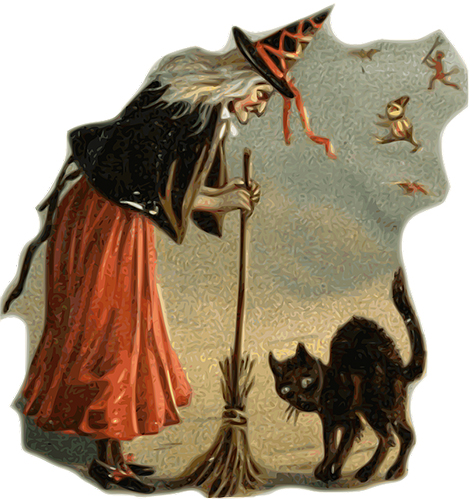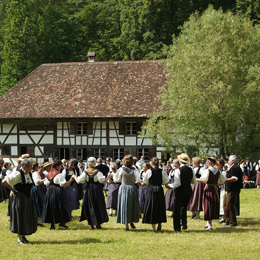Listen and repeat.
C’era una volta
Once upon a time

C’era una volta una strega buona
There was once a good witch
cattivo / cattiveria
wicked / wickedness

Nelle favole le streghe sono spesso cattive
In fairy tales witches are often evil
felice / felicità
happy / happiness

Eravamo così felici nel villaggio
We were so happy in the village
infelice / infelicità
unhappy / unhappiness

La cattiveria della gente mi rende infelice
People’s wickedness makes (renders) me unhappy
allegro / allegria
cheerful / cheerfulness

E i bambini non erano più allegri come prima
And kids were not as cheerful as before anymore
triste / tristezza
sad / sadness

Genoveffa era triste perché la gente la giudicava solo per il suo aspetto
Genoveffa was sad because people judged her only by her appearance
debole / debolezza
weak / weakness

Le fate nel bosco erano deboli e indifese
The fairies in the woods were weak and helpless
forte / forza
strong / strength

Gli gnomi del villaggio erano piccoli, ma forti
The gnomes in the village were small, but strong
lento / lentezza
slow / slowness

In passato i carri erano lenti
In the past carts were slow
veloce / velocità
fast / speed

Oggi i mezzi di trasporto sono molto veloci
Today means of transportation are very fast
fortunato / fortuna
lucky / luck

In passato la vita era semplice. Eravamo fortunati.
In the past, life was simple. We were lucky.
sfortunato / sfortuna
unlucky / bad luck

Uno specchio rotto porta sfortuna
A broken mirror brings bad luck
NOMI ASTRATTI E SUFFISSI
In Italian, nouns that refer to abstract concepts are usually used in combination with their definite article:
- La fortuna aiuta i coraggiosi = Luck helps the brave
- L’amore è un bellissimo sentimento = Love is a beautiful feeling
Some of these nouns are formed from their corresponding adjectives by dropping the last vowel and by adding some specific endings (lento – lentezza). Sometimes we need to slightly modify the adjective before adding these endings (buono – bontà; forte – forza).
The most common endings for abstract nouns are:
-eria
| cattivo | cattiveria | wicked / wickedness |
| misero | miseria | poverty stricken, poor / poverty |
-ità
| felice | felicità | happy / happiness |
| infelice | infelicità | unhappy / unhappiness |
| veloce | velocità | fast / speed |
| utile | utilità | useful / usefulness |
-ezza
| bello | bellezza | beautiful / beauty |
| brutto | bruttezza | ugly / ugliness |
| triste | tristezza | sad / sadness |
| lento | lentezza | slow / slowness |
-ia
| allegro | allegria | cheerful / cheerfulness |
| pazzo | pazzia | crazy / madness |
Associa ogni immagine alla parola giusta.
Match each image with the right word.
Scrivi l’aggettivo con il significato opposto.
Write the adjective with the opposite meaning.
Scrivi il nome astratto che deriva dall’aggettivo dato. Per esempio: buono → bontà.
Write the abstract noun deriving from the given adjective. For example: buono → bontà.
If you have any questions or doubts, leave a comment below.




